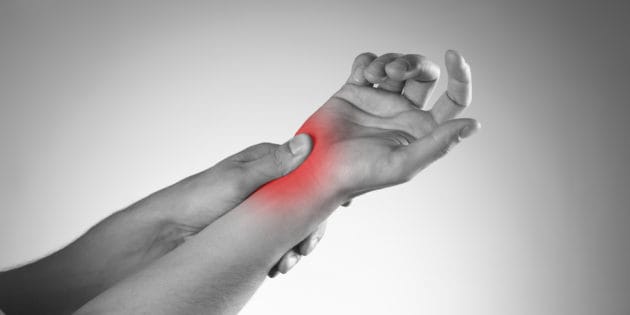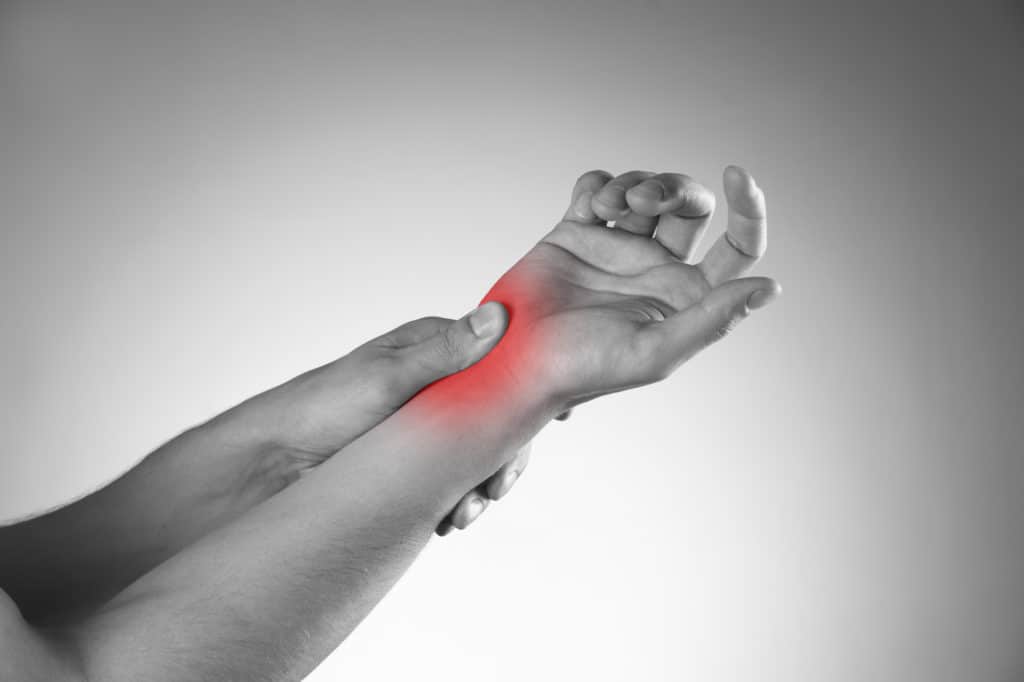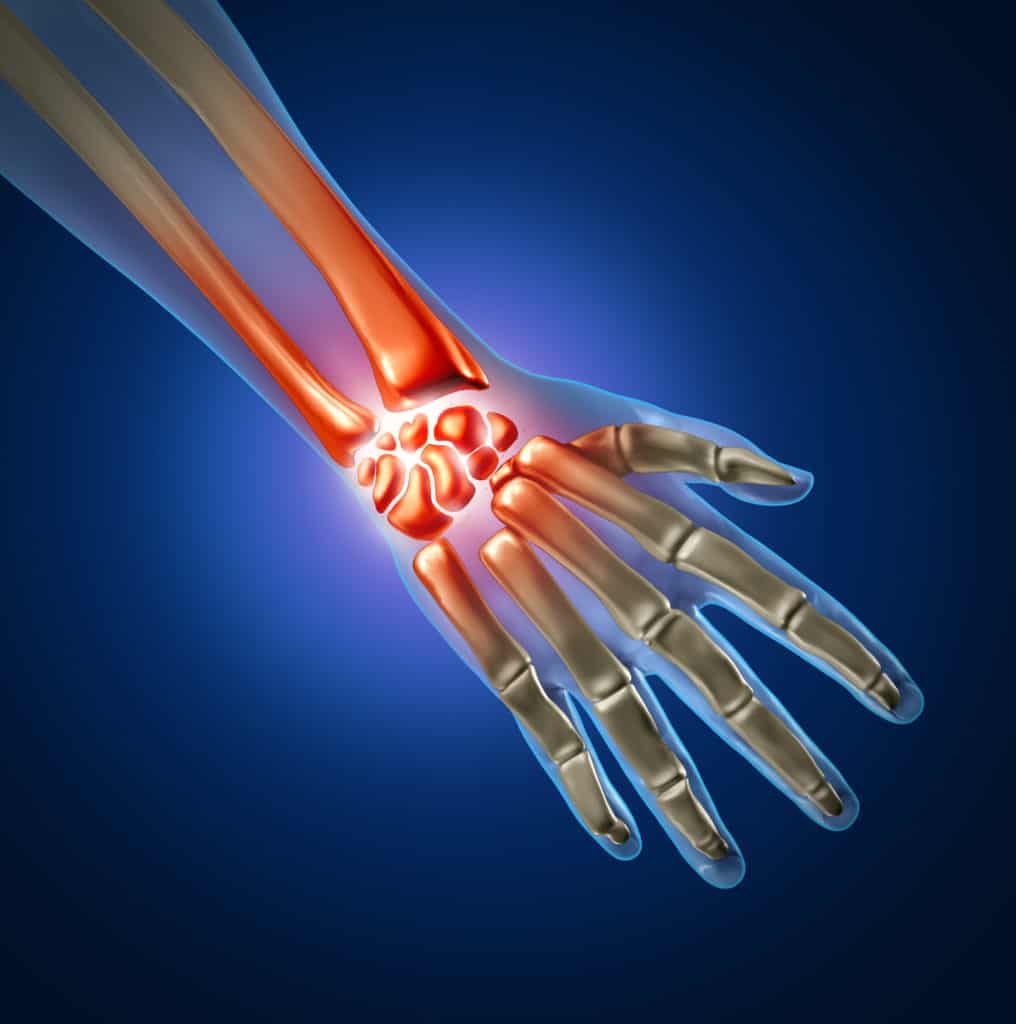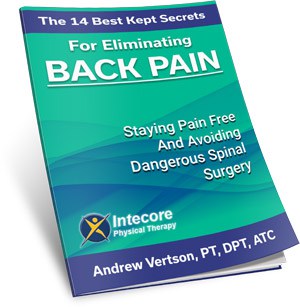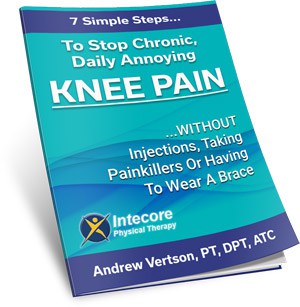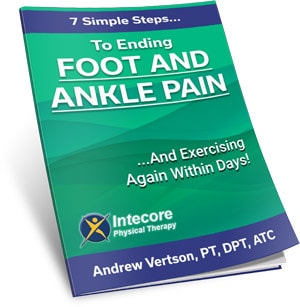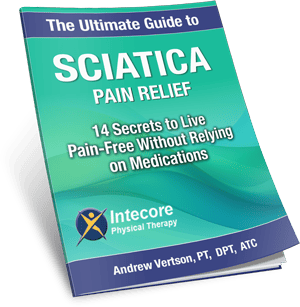Are you worried you have Carpal Tunnel Syndrome?
Carpal tunnel syndrome is the most common form of nerve damage we see at the Intecore Physical Therapy clinic. Unfortunately, it’s the same situation for other physical therapists worldwide, too, with up to 90% of patients who seek treatment for neuropathy presenting with Carpal Tunnel Syndrome.
This painful condition – which involves the median nerve on the palm of your hand, causes symptoms such as tingling in the fingers, numbness, weakness, and pain in the forearm and wrist. It occurs when the nerve is “in a tight space” (carpal tunnel), and the ligaments and bones surrounding it causes compression.
We can usually diagnose the condition after a series of physical tests and evaluating your symptoms and medical history. We examine your pain levels and nerve function in various positions. But for confirmation, we can also check the intratunnel pressure at three different points on your wrist. We do this using a manometer (although this usually isn’t necessary); The typical pressure in the carpal tunnel, surrounding the median nerve, is between 2 to 10 mm Hg. In carpal tunnel syndrome, this figure can rise to 32 mm Hg.
The median nerve – “the eye of the hand” runs from the top of the arm (at the branchial plexus) down through your arm and forearm and into the palm side of your thumb, index finger, middle finger, ring finger, and nail bed. Therefore, when this nerve becomes “entrapped.” As is the case in Carpal Tunnel Syndrome, it causes functional disability and symptoms such as pain, numbness, tingling sensations, and weakness in the corresponding hand and arm.
Interestingly, women are at higher risk of getting Carpal Tunnel Syndrome. A study published in the Australian and New Zealand Journal of Surgery found that CTS could affect women (>55 years old age) two times more than men. This increased risk can be because the carpal tunnel structure in women is relatively narrower than in men.
There are multiple other causes and reasons why someone should get Carpal Tunnel Syndrome-mimicking symptoms. For this reason, it’s essential to get checked over by a professional to determine whether you have Carpal Tunnel Syndrome or another condition.
However, in this article, we’re going to focus, specifically, on Carpal Tunnel Syndrome and the things that can exacerbate your chances of suffering from Carpal Tunnel Syndrome.
Carpal Tunnel Syndrome – Occupation:
Work is one of the most common causes of Carpal Tunnel Syndrome – mainly if your work requires you to perform the same task multiple times. Job duties such as heavy manual work, repetitive tasks, or using vibration tools for a prolonged time can make you more susceptible to CTS. Surprisingly though, it seems typing, and keyboard use may not present the same risks. A population-based study, published in Arthritis and Rheumatism, investigated the association of Carpal Tunnel Syndrome with keyboard use in an office setting. It found that intensive keyboard use is associated with a lower risk of CTS.
In addition to the median nerve compression that can occur due to manual work, exposure to biochemical hazards such as white spirits, varnishes, dye, paints, and pesticides during work cause neurotoxicity, which may make the median nerve more vulnerable to develop Carpal Tunnel Syndrome.
Carpal Tunnel Syndrome- Genetics:
Carpal Tunnel Syndrome can run in families who carry a strong tendency for median nerve entrapment due to abnormal anatomy of the carpal tunnel and the structures of the wrist and forearm. It can also affect those with heredity inflammatory conditions.
For instance, a study – published in Brain Communications found a high prevalence of Carpal Tunnel Syndrome (10-25%) in people with nerve growth factor-beta mutations. This gene mutation alters the nerve fiber density and deep pain and temperature sensing capabilities, resulting in the development of Carpal Tunnel Syndrome.
Carpal Tunnel Syndrome – Wrist Fractures/Dislocation:
Bone fractures near the junction of the wrist and hand can cause Carpal Tunnel Syndrome. For example, a distal radius fracture (wrist bones) might narrow the space in the carpal tunnel and compress the median nerve. The chances of compression can be more pronounced in women (due to relatively small carpel tunnel) than in men. A study published in Scientific Reports revealed that carpal tunnel syndrome usually develops within nine months of the original fracture.
Carpal Tunnel Syndrome – Obesity:
People with a BMI of more than 30 (BMI>30), classified as obese, are more at risk of getting Carpal Tunnel Syndrome. Again, obese women are more susceptible. A study recently found that obesity is directly related to Carpal Tunnel Syndrome because adipose tissue (fat cells) accumulated within the carpal tunnel and squeezed the surrounding structures. This squeezing subjects the median nerve – the nerve-related to Carpal Tunnel Syndrome, to compression.
Carpal Tunnel Syndrome – Pregnancy:
Being pregnant can increase the risk of Carpal Tunnel Syndrome, which is more pronounced in the third trimester of the pregnancy. In addition, the risk of Carpal Tunnel Syndrome heightens with excessive gestational weight gain.
We expect to see gestational weight gain in every pregnancy due to increased fluid volume in tissue spaces, enhanced blood volume, and the weight of your baby. But Carpal Tunnel Syndrome can be more common in women who were obese (BMI greater than 31kb/m2) pre-pregnancy and those who have been pregnant before.
Metabolic disorders:
Some common metabolic disorders can increase your risk of Carpal Tunnel Syndrome. These conditions include:
Diabetes:
Diabetes Mellitus can cause Carpal Tunnel Syndrome due to constant hyperglycemia (high blood sugar). However, the exact mechanism behind this correlation between diabetes and Carpal Tunnel Syndrome is still not known.
It could be because the neuropathic (nerves damaging) complication that is common with diabetes could make the median nerve more vulnerable to compression within the carpal tunnel. But, whatever the mechanism, the connection between the two conditions is another good reason to live a healthy lifestyle and keep your blood sugar stable.
Hypothyroidism:
Thyroid disease and an underactive thyroid, specifically, could also be the cause of your Carpal Tunnel Syndrome. A study published in the Journal of Clinical & Diagnostic Research states that the hypothyroid state favors the accumulation of fatty deposits on the median nerve and in the surrounding tissues.
Hypothyroidism can also cause fluid build-up (edema), leading to subsequent nerve suppression, resulting in the symptoms of Carpal Tunnel Syndrome.
Tumors:
Although rare, tumors within the nerve (intraneural) and outside the nerve (extraneural) near the forearm or palm compress the passing median nerve and cause Carpal Tunnel Syndrome. In medical school, they tell Doctors they should consider a tumor when patients present with non-typical signs of Carpal Tunnel Syndrome. These signs include young age, male, and no history of repetitive, manual labor. But this is not always the case because there are so many different reasons people develop Carpal Tunnel Syndrome or similar symptoms that don’t include tumors.
Kidney failure:
Patients on long-term dialysis (>10 years) due to end-stage renal disease (kidney failure) can develop Carpal Tunnel Syndrome. This connection between kidney failure and Carpal Tunnel Syndrome can be because dialysis cannot effectively remove one specific protein (beta microglobulin) from the blood. Subsequently, beta microglobulin accumulates and deposits around the tissues, such as carpal tunnel, joints, ligaments, and neural tissue, causing Carpal Tunnel Syndrome.
Vitamin Deficiency:
Certain vitamin deficiencies can enhance Carpal Tunnel Syndrome risk. For example, a study published in Biomedical Reports found vitamin D deficiency in almost all patients with Carpal Tunnel Syndrome. This connection between Vitamin D Deficiency and Carpal Tunnel Syndrome can be because vitamin D exhibits a brain-protective mechanism by regulating calcium and β amylase deposits. Besides this, though, vitamin D naturally protects against damage in the neurons. So, if you are suffering from Carpal Tunnel Syndrome, it’s a good idea to get out in the sunshine or book a holiday, right?
Autoimmune diseases:
Diseases that cause self-immunity where the body attacks its cells can cause Carpal Tunnel Syndrome. For instance, autoimmune-type arthritis diseases can cause Carpal Tunnel Syndrome by attacking and provoking inflammatory changes in the ligaments, tendons, bones, and nerves, which is the perfect storm for developing the symptoms of Carpal Tunnel Syndrome as well as the well-known symptoms of arthritis. We most commonly see Carpal Tunnel Syndrome in patients who have Psoriatic Arthritis, the type that occurs alongside Psoriasis.
Patients with Rheumatoid Arthritis, another autoimmune type of arthritis, are also commonly affected by Carpal Tunnel Syndrome. Rheumatoid Arthritis manifests as tenosynovitis (inflammation of tendon and synovial fluid of the joints) of radius and carpal joints. So, it’s easy to see why this swelling in the wrists and compression of the carpal tunnel would make them more susceptible.
Similarly, patients suffering from other autoimmune diseases such as Crohn’s disease (highest risk), scleroderma, and Sjogren syndrome are susceptible to Carpal Tunnel Syndrome. This connection is due to the inflammation and vitamin deficiencies associated with these diseases.
Other causes of Carpal Tunnel Syndrome:
Other conditions such as menopause, taking oral contraceptives, and lymphedema – after surgery and cancer treatment or because of medication side effects can also cause Carpal Tunnel Syndrome. Scientists also believe that caffeine, tobacco, and alcohol consumption could similarly enhance your risk of Carpal Tunnel Syndrome.
How To Treat Carpal Tunnel Syndrome
Carpel tunnel syndrome is a painful neuropathy that occurs for many reasons, and adult females are at higher risk. However, we can treat it and help you get out of pain fast. If you’re worried you have Carpal Tunnel Syndrome, we recommend you book an appointment to talk to one of our Carpal Tunnel Experts to find out for sure. Book your free appointment now.
- 7 Ways to Get Rid of Tension Headaches Naturally - July 1, 2025
- Why Are My Feet Swollen? Common Causes Explained - June 2, 2025
- What Is Restless Leg Syndrome? Symptoms, Causes, and Relief Options - May 5, 2025

